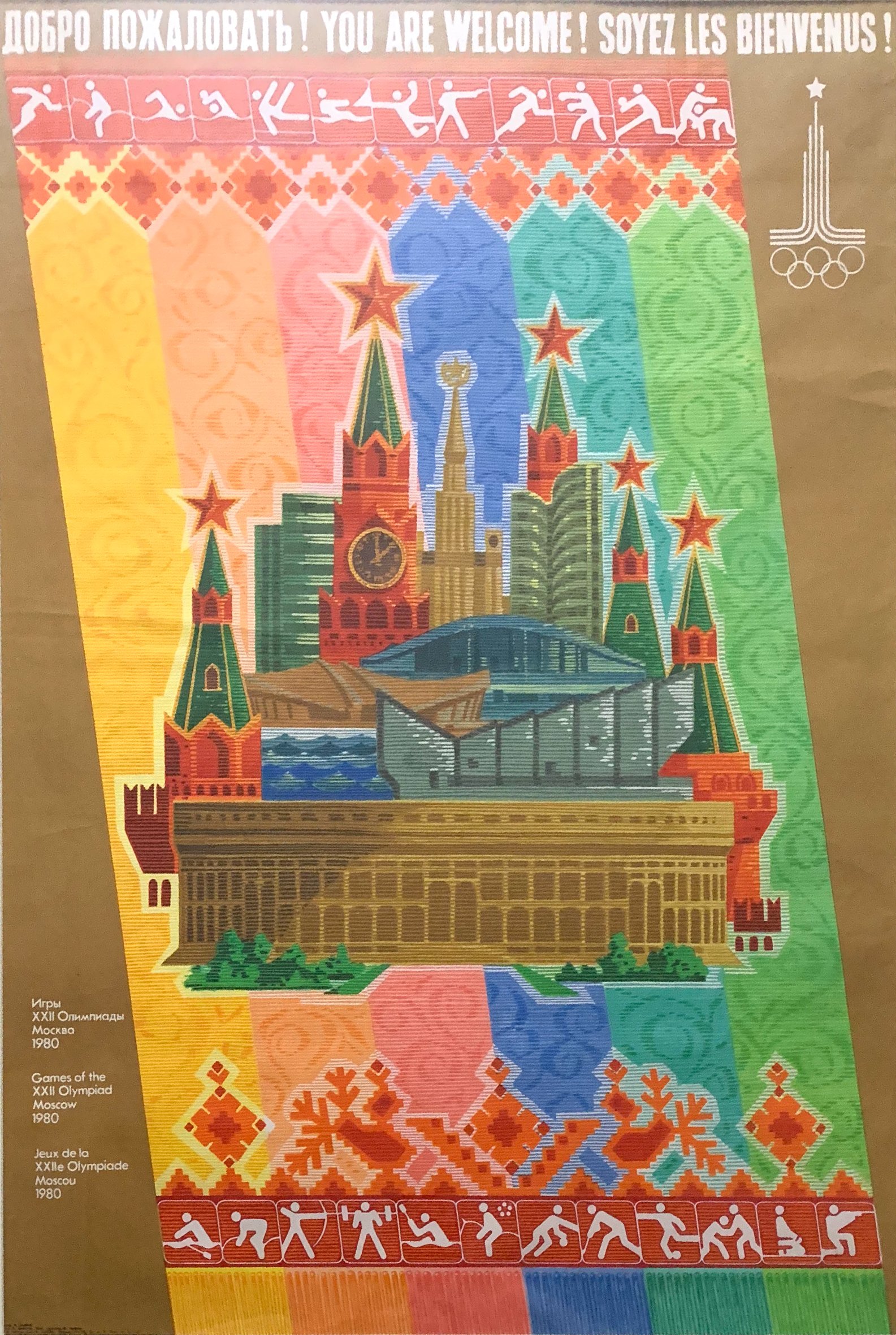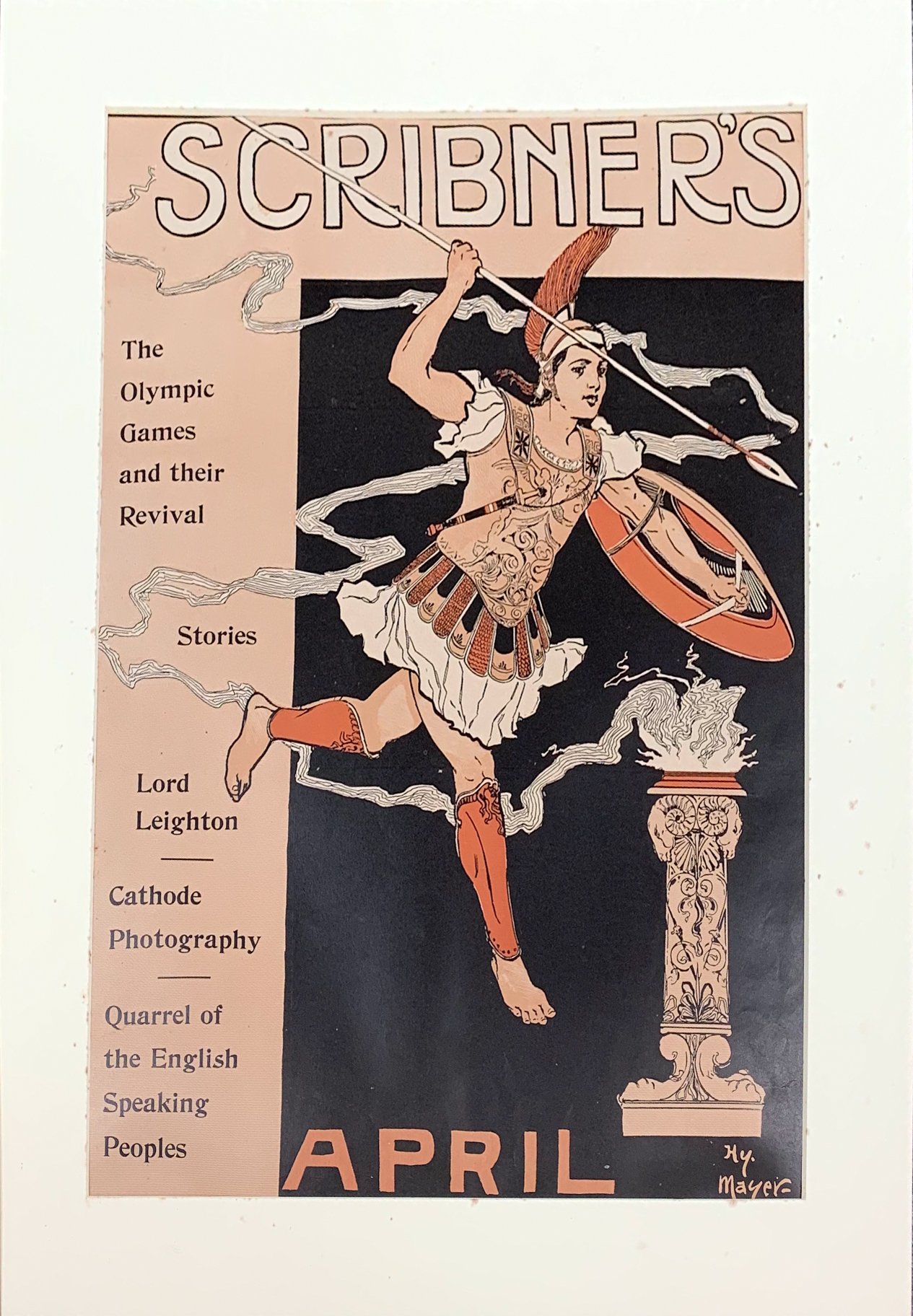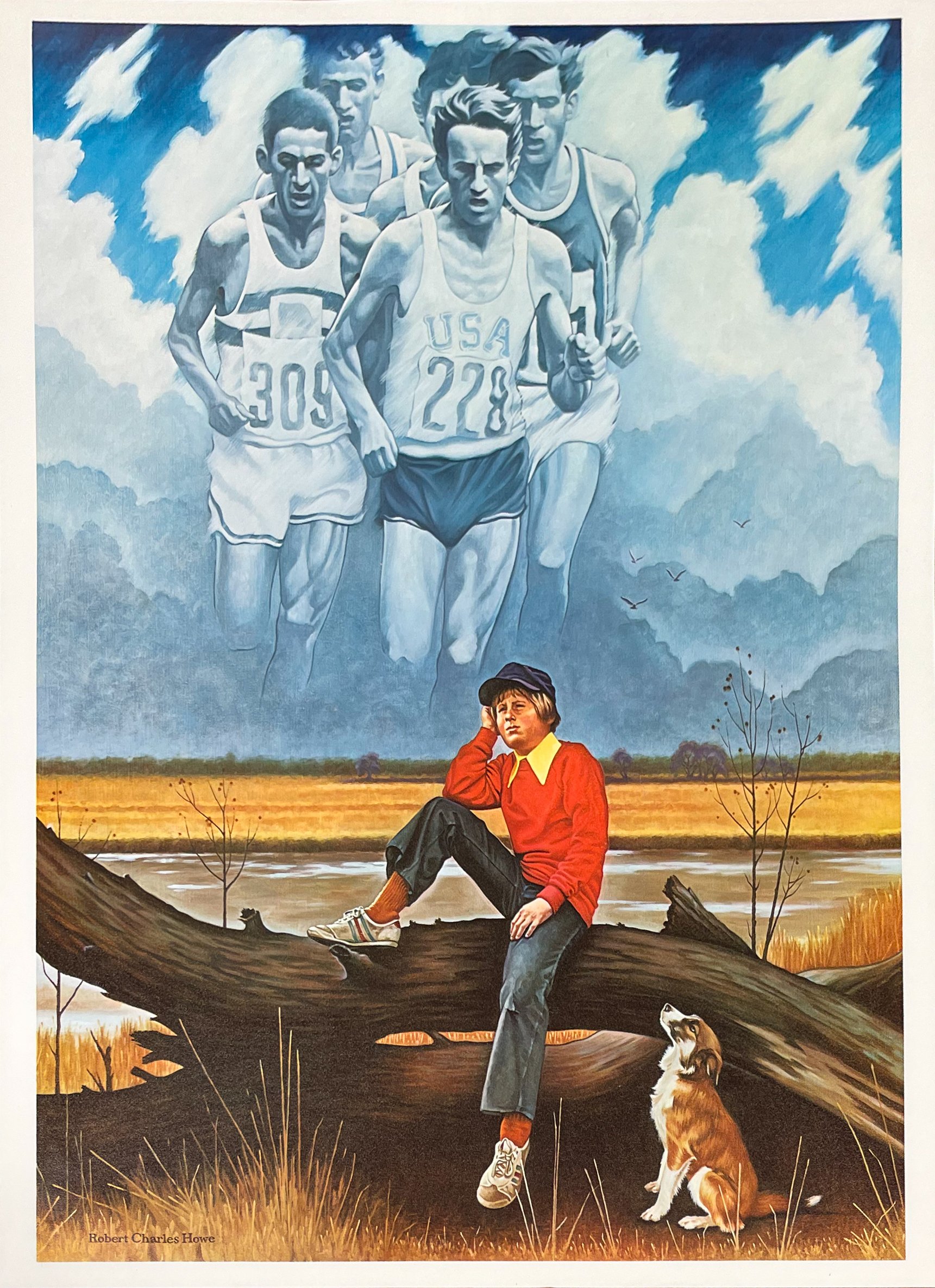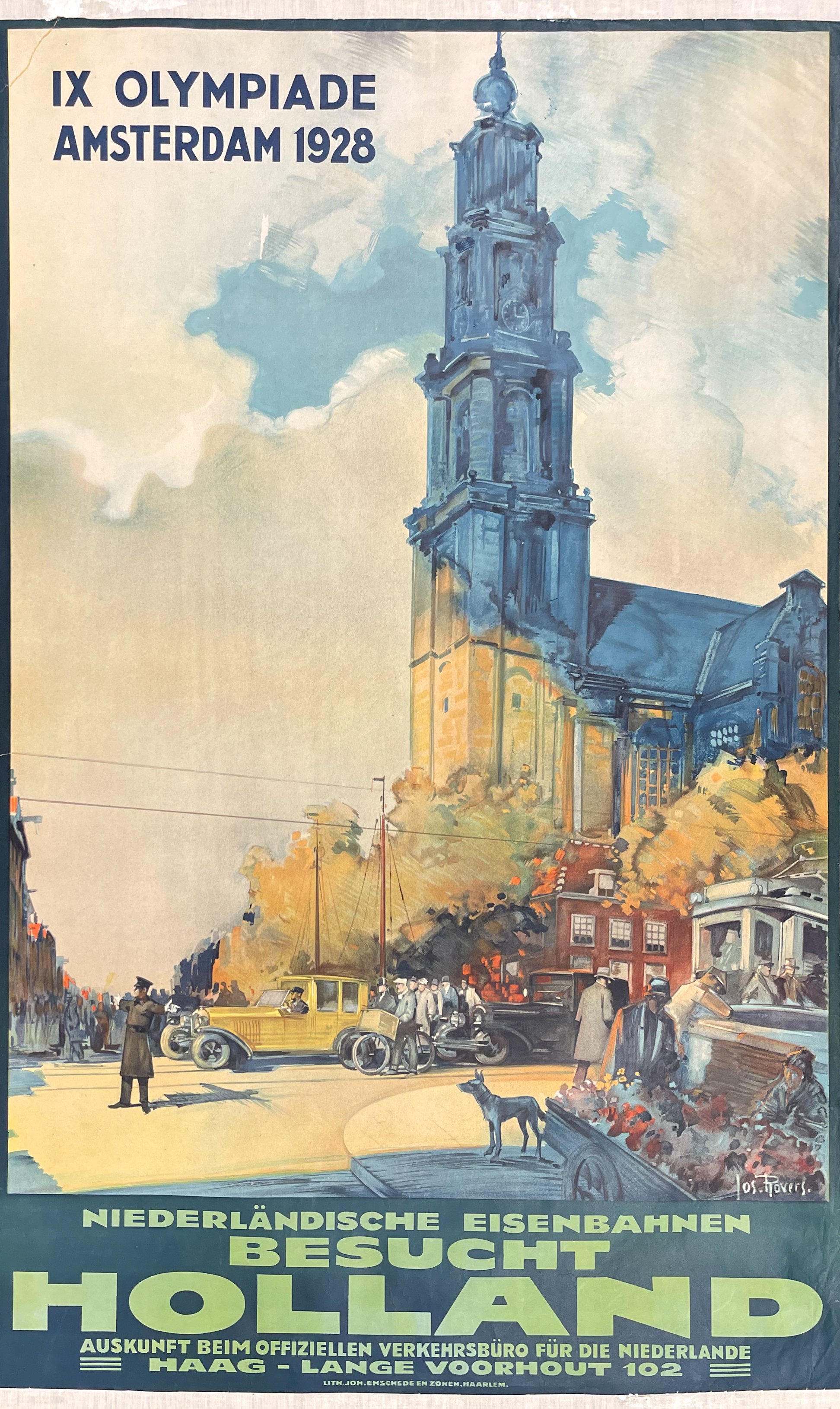 Image 1 of 1
Image 1 of 1


Unknown - Moscow Olympic Poster featuring the City of Moscow and the Olympic Village, 1980
$0.00
22 x 33 ″
Moscow Olympic Poster featuring the City of Moscow and the Olympic Village In 1979, after the Soviet Union had sent troops into Afghanistan, the U.S. President, Jimmy Carter decided the country would be boycotting the 1980 Olympic games in Moscow. This was the first time in Olympic history the games would be hosted in a country under communist rule, causing many other countries to boycott the event. This led to concern that the Olympic goal of international goodwill and camaraderie was at risk of collapse. Despite the controversy Moscow was facing, Russia still aimed to create promotional tools to improve its overall image specifically through the utilization of posters and visual propaganda.
Moscow Olympic Poster featuring the City of Moscow and the Olympic Village In 1979, after the Soviet Union had sent troops into Afghanistan, the U.S. President, Jimmy Carter decided the country would be boycotting the 1980 Olympic games in Moscow. This was the first time in Olympic history the games would be hosted in a country under communist rule, causing many other countries to boycott the event. This led to concern that the Olympic goal of international goodwill and camaraderie was at risk of collapse. Despite the controversy Moscow was facing, Russia still aimed to create promotional tools to improve its overall image specifically through the utilization of posters and visual propaganda.
22 x 33 ″
Moscow Olympic Poster featuring the City of Moscow and the Olympic Village In 1979, after the Soviet Union had sent troops into Afghanistan, the U.S. President, Jimmy Carter decided the country would be boycotting the 1980 Olympic games in Moscow. This was the first time in Olympic history the games would be hosted in a country under communist rule, causing many other countries to boycott the event. This led to concern that the Olympic goal of international goodwill and camaraderie was at risk of collapse. Despite the controversy Moscow was facing, Russia still aimed to create promotional tools to improve its overall image specifically through the utilization of posters and visual propaganda.
Moscow Olympic Poster featuring the City of Moscow and the Olympic Village In 1979, after the Soviet Union had sent troops into Afghanistan, the U.S. President, Jimmy Carter decided the country would be boycotting the 1980 Olympic games in Moscow. This was the first time in Olympic history the games would be hosted in a country under communist rule, causing many other countries to boycott the event. This led to concern that the Olympic goal of international goodwill and camaraderie was at risk of collapse. Despite the controversy Moscow was facing, Russia still aimed to create promotional tools to improve its overall image specifically through the utilization of posters and visual propaganda.






